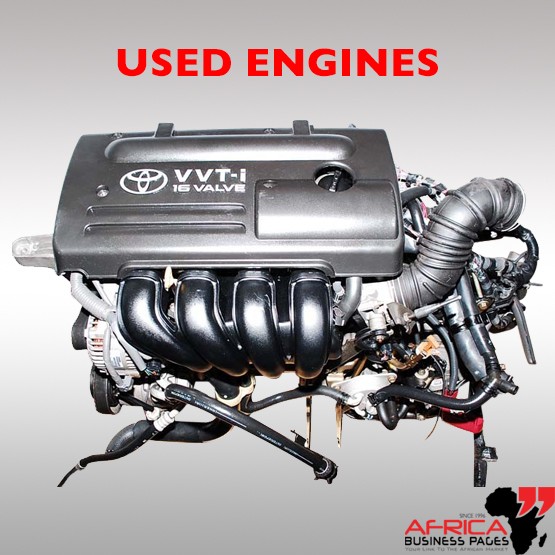Why Engines for Africa Are Essential for Reliable Transportation Solutions
Comprehending the Long-Term Conveniences of Buying Engines for Africa for Future Growth
The possibility of spending in engines for Africa-- spanning facilities, technology, and education-- presents a compelling opportunity for long-lasting development and stability. Such financial investments not only pave the way for lasting financial diversity yet additionally fortify resilience versus worldwide difficulties.
Economic Security and Strength

In addition, resilience allows African countries to adapt to changing international dynamics, including climate adjustment and technical developments. By focusing on financial diversification, nations can minimize dependency on a slim variety of markets, therefore alleviating dangers connected with financial downturns. Financial investment in framework, innovation, and education and learning further bolsters this resilience, encouraging neighborhoods to thrive in spite of obstacles.
Applying audio financial policies and strengthening banks are also essential approaches for enhancing economic stability. These procedures can assist in access to credit history, boost financial savings rates, and advertise efficient resource allowance. Eventually, a durable financial structure lays the structure for sustainable development, making sure that Africa can profit from its immense potential while preparing for future unpredictabilities.
Job Creation Opportunities
A lively task market is necessary for driving sustainable development and lowering poverty in Africa. Buying engines for Africa, particularly in industries such as technology, production, and agriculture, can substantially boost task production opportunities throughout the continent. As brand-new sectors emerge, they require a labor force geared up with diverse skills, causing raised employment prospects for local populaces.
These investments not only develop straight work chances yet additionally stimulate secondary sectors. A burgeoning production sector can lead to heightened demand for logistics, upkeep, and supply chain administration duties. This multiplier effect enhances the overall employment landscape, fostering a durable community where different sectors thrive collectively.
Moreover, increased work chances can boost entrepreneurship, as individuals with stable revenues frequently seek to spend in their very own services. This business spirit can provide added work methods, adding to a vibrant economy.
Eventually, by concentrating on task production with strategic financial investments, Africa can harness its capacity, guaranteeing that economic development equates right into concrete advantages for its citizens - engines for Africa. In doing so, the continent can construct a sustainable future that prioritizes both economic advancement and social upliftment

Enhancing Education And Learning Systems
Regularly boosting education and learning systems is essential for furnishing Africa's young people with the skills needed to thrive in a rapidly evolving work market. A durable educational structure has to prioritize both academic quality and functional skill advancement. By aligning educational programs with the needs of markets, schools can much better prepare students for future employment possibility.
Financial investment in teacher training programs is vital to boost instructional high quality. Well-trained educators inspire trainees and foster important thinking, creative thinking, and analytic capacities. In addition, incorporating technological and vocational training right into the education system can offer trainees with substantial abilities that meet market needs, thus reducing youth joblessness prices.

Additionally, improving access to education and learning, especially in underserved and country locations, is essential. Approaches such as mobile learning platforms and community-based education efforts can connect the gap, ensuring that all youth have the chance to prosper (engines for Africa). Ultimately, a well-rounded education system will be a keystone for Africa's lasting development and advancement
Improvements in Modern Technology
Harnessing the power of modern technology is transforming different markets across Africa, leading the way for technology and growth. The assimilation of innovative innovations such as synthetic knowledge, big information, and the Internet of Things (IoT) is revolutionizing markets, enhancing productivity, and driving financial advancement. These improvements are making it possible for organizations to simplify procedures, boost decision-making procedures, and cultivate a more open market setting.
In agriculture, for example, accuracy farming techniques powered by information analytics are maximizing plant yields and source management. Likewise, the financial field is seeing a surge in mobile financial and fintech remedies, which are increasing monetary incorporation and providing vital services to underserved populaces. Additionally, the healthcare sector is profiting from telemedicine and electronic health and wellness records, enhancing access to high quality care across remote areas.
As modern technology continues to develop, its influence on education is additionally substantial, with e-learning systems expanding educational chances. By purchasing these technical innovations, African countries can unlock brand-new economic possibilities, develop work, and elevate living criteria. Embracing advancement is crucial for lasting development, making sure that Africa stays competitive on the global phase.
Facilities Advancement Impact
The rapid innovations in modern technology are closely linked with the urgent need for facilities growth throughout Africa. As countries aim to improve their economic landscapes, buying robust infrastructure systems becomes vital. Efficient facilities-- making up transportation networks, energy grids, and communication systems-- helps with enhanced access to markets and resources, inevitably site link bolstering productivity and economic development.
The impact of framework advancement extends past immediate financial advantages. Boosted facilities promotes a setting favorable to development, attracting both regional and foreign financial investments.
Furthermore, calculated financial investments in facilities can minimize the risks related to climate modification, as resilient systems are crucial for adapting to environmental difficulties. By prioritizing sustainable infrastructure advancement, African countries can make certain long-term development and stability. Inevitably, the interplay between technological innovations and framework growth is essential for understanding the continent's complete potential and achieving lasting advancement objectives.
Conclusion
In verdict, purchasing engines for Africa-- encompassing education and learning, technology, and infrastructure-- provides significant long-lasting advantages vital for lasting development. Such strategic financial investments foster economic stability and resilience, produce job opportunities, and enhance education and learning systems, a fantastic read ultimately resulting in developments in innovation and facilities growth. The cumulative result of these initiatives not just enhances market gain access to and resource visit their website distribution however additionally settings African countries to adjust and thrive in a significantly vibrant global landscape.
Financial security and durability are vital elements for sustainable development in Africa, particularly as the continent looks for to harness its huge resources and potential. By focusing on economic diversity, countries can decrease reliance on a narrow variety of fields, therefore minimizing threats associated with economic slumps. Ultimately, a robust economic structure lays the foundation for lasting development, guaranteeing that Africa can take advantage of on its tremendous capacity while preparing for future unpredictabilities.
Reliable framework-- making up transportation networks, power grids, and communication systems-- facilitates enhanced access to markets and resources, ultimately boosting performance and financial growth.
Such calculated financial investments foster financial stability and resilience, produce work possibilities, and boost education and learning systems, ultimately leading to improvements in innovation and facilities growth.